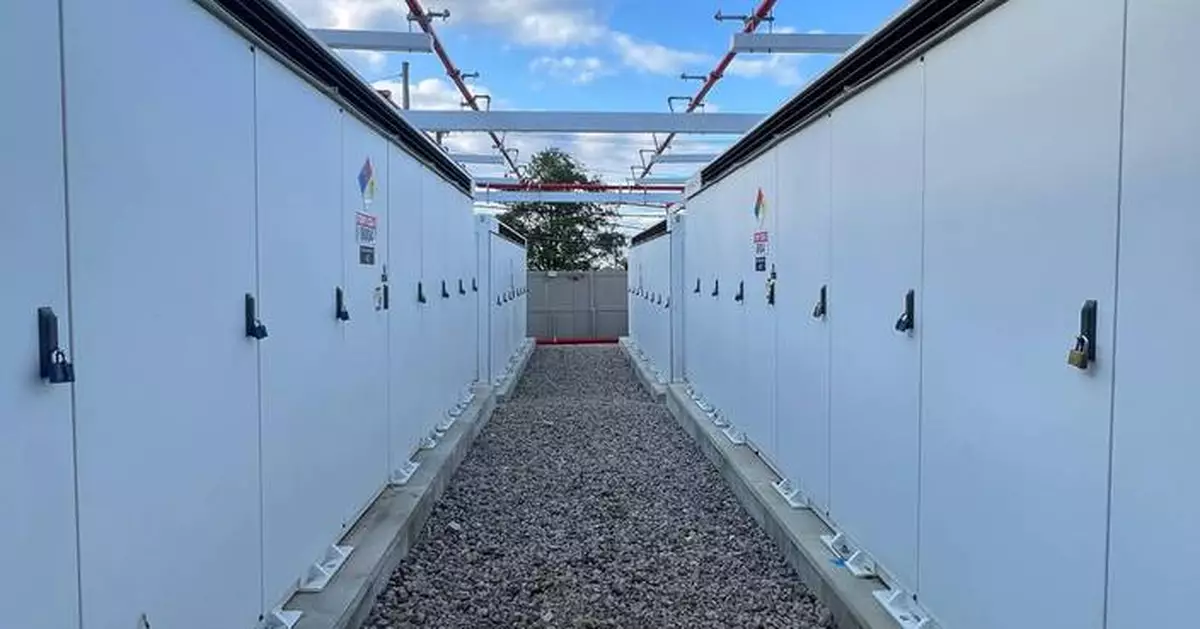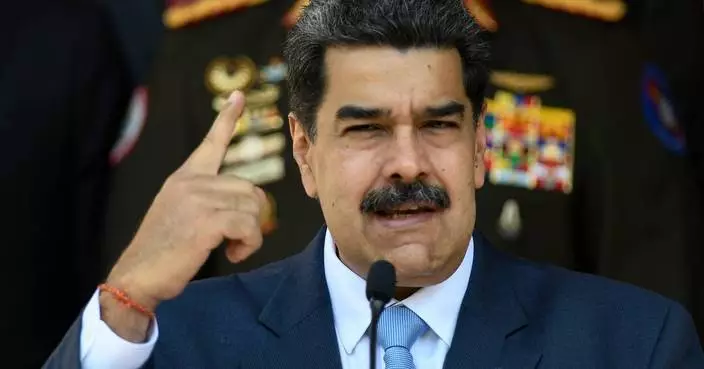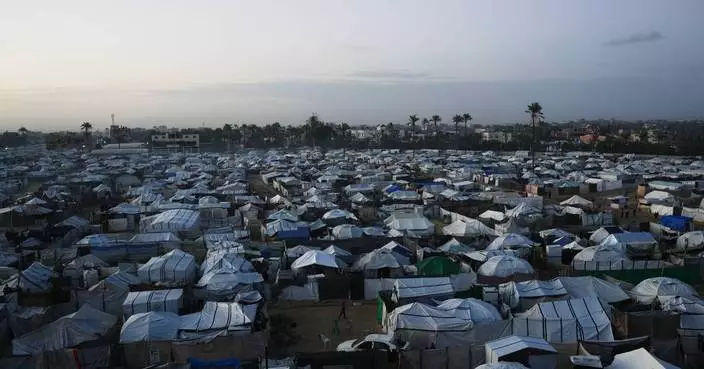NEW YORK--(BUSINESS WIRE)--Jan 22, 2025--
NineDot Energy ®, the leading developer of community-scale battery energy storage systems (BESS) in the New York City metro area, today announced the closing of a $65 million equipment financing transaction led by First Citizens Bank, a leader in renewable energy finance. This financing supports the purchase of nearly 100 Megawatts (MW) / 400 Megawatt hours (MWh) of batteries for use in up to 20 battery storage projects across the New York City metro area.
This press release features multimedia. View the full release here: https://www.businesswire.com/news/home/20250122977701/en/
“NineDot has made tremendous progress in providing battery energy storage to the New York City area,” said David Arfin, NineDot Energy CEO and Co-founder. “For New York to achieve its sustainability goals, we know that battery storage is a critical enabler. First Citizens Bank understands this need and opportunity well, and we’re thrilled to have them provide this equipment financing that affirms NineDot’s vision and execution capability.”
“We’re excited to spearhead this equipment financing transaction for NineDot Energy,” said Mike Lorusso, group head for First Citizens Energy Finance. “As a leader in renewable energy finance, we are committed to supporting companies delivering clean energy solutions for dense urban areas, and no one is doing that better than NineDot.”
NineDot Energy is on track to meet its goal of having 400MW of battery storage in development, construction or operation by the end of 2026. The company currently has over 50 projects in some phase of development or operation in the New York City area, with additional projects in the pipeline. Based on Con Edison’s interconnection queue data, NineDot’s community battery storage development activity is second to none in ConEd’s New York territory.
With this transaction, NineDot’s total capital raised is over $500 million.
Contact NineDot at nine.energy/connect.
About NineDot Energy
NineDot Energy is the leading community-scale battery storage developer and operator in the New York City metropolitan region. We create innovative urban energy solutions that support a more resilient grid, deliver economic savings, reduce carbon emissions, and improve environmental equity. NineDot is also expanding beyond stationary storage to incorporate mobile batteries and electric vehicle charging into some of our current and future sites. NineDot Energy’s name derives from the classic mathematical puzzle for sparking out-of-the-box solutions. We are based in Brooklyn, New York at NYU’s Urban Future Lab. Learn more at nine.energy.
About First Citizens Bank
First Citizens Bank helps personal, business, commercial and wealth clients build financial strength that lasts. Headquartered in Raleigh, N.C., First Citizens has built a unique legacy of strength, stability and long-term thinking that has spanned generations. First Citizens offers an array of general banking services including a network of more than 500 branches and offices in 30 states; commercial banking expertise delivering best-in-class lending, leasing and other financial services coast to coast; innovation banking serving businesses at every stage; and a nationwide direct bank. Parent company First Citizens BancShares, Inc. (NASDAQ: FCNCA) is a top 20 U.S. financial institution with more than $200 billion in assets and a member of the Fortune 500™. Discover more at firstcitizens.com.


A NineDot Energy battery storage site in New York City. (Photo: NineDot Energy)
Veteran U.S. pilot Kaillie Humphries Armbruster got her second two-woman World Cup bobsled win of the season on Sunday, shortly before German star Francesco Friedrich's streak of 48 consecutive medal-winning finishes on the circuit came to an end.
Humphries Armbruster teamed with Jasmine Jones to win by the slimmest of margins in bobsled — one one-hundredth of a second. They finished two runs at St. Moritz, Switzerland, in 2 minutes, 18.40 seconds, while the Swiss team of Melanie Hasler and Nadja Pasternack was second in 2:18.41.
Laura Nolte and Leonie Kluwig of Germany were third in 2:18.43. The 0.03-second margin between the three medal-winning sleds was the closest in a World Cup race since 0.02 seconds separated the top three finishers in a two-man race at Whistler, Canada, on Jan. 23, 2016.
It was the 32nd World Cup win for Humphries Armbruster and the first for Jones.
"I knew that Kaillie and I could do it with fast pushes and a great drive,” Jones said.
Kaysha Love and Emily Renna were eighth for the U.S. in the two-woman race, while Elana Meyers Taylor and rookie bobsledder Jadin O'Brien — a national champion in track at Notre Dame — were 10th.
In the four-man race, Friedrich drove his sled to a sixth-place finish — his lowest in a World Cup two- or four-man event since January 2023. He had 19 golds, 22 silvers and seven bronzes in that 48-race streak since; one of those golds was later taken away following sanctions against a German brakeman.
Instead, it was Adam Ammour of Germany driving to the win — the first four-man victory of his career. Johannes Lochner of Germany drove to second and Michael Vogt of Switzerland was third.
Frank Del Duca was 16th for the U.S., which will unveil its Olympic teams for the Milan Cortina Games next week.
USA Luge's women's doubles team of Chevonne Forgan and Sophia Kirkby are going to the Olympics. The Milan Cortina Games will be the first to include women's doubles as a medal event.
Only 11 sleds are going to the Olympics in women's doubles, primarily the top-ranked sled from each competing nation. That means the U.S. team of Maya Chan and Sophia Gordon — a contending sled all season with more than enough standings points to qualify — likely won't compete at the Olympics, unless some nations decline their spot in the Milan Cortina field.
Also Olympics-bound for the U.S.: the men's doubles teams of Marcus Mueller and Ansel Haugsjaa, plus 2022 Olympians Zack DiGregorio and Sean Hollander.
The team will be unveiled by USA Luge on Monday and likely to be officially nominated by the U.S. Olympic and Paralympic Committee later this week.
In a World Cup women's doubles race at Winterberg, Germany, on Sunday, Jessica Degenhardt and Cheyenne Rosenthal from the host nation won in 1:26.710, followed by Selina Egle and Lara Kipp of Austria and Dajana Eitberger and Magdalena Matschina of Germany.
Germany also won the men's doubles World Cup race, with Tobias Wendl and Tobias Arlt prevailing in 1:25.599. Austria took silver and bronze; Thomas Steu and Wolfgang Kindl were second, Juri Gatt and Riccardo Schoepf were third.
Mueller and Haugsjaa were the top U.S. men's doubles sled, placing 10th.
Germany finished off a sweep of the day with a win in the team relay, with Austria second and Italy third. The U.S. was fourth.
Luge: World Cup men’s singles, women's singles Saturday at Oberhof, Germany.
Bobsled: World Cup monobob, two-man races Saturday at Altenberg, Germany.
Skeleton: Men’s, women’s and mixed World Cup races on Friday at Altenberg.
AP Olympics: https://apnews.com/hub/milan-cortina-2026-winter-olympics

Austria's Selina Egle and Lara Michaela Kipp race through the ice channel, during the Women's doubles 1st run, at the Luge World Cup, in Winterberg, Germany, Sunday, Jan. 11, 2026. (David Inderlied/dpa via AP)

Juri Thomas Gatt, left, and Riccardo Schöpf of Austria celebrate their third place in the doubles men competition of the Luge World Cup in Winterberg, Germany, Sunday Jan. 11, 2026. (David Inderlied/dpa via AP)

Tobias Wendl and Tobias Arlt of Germany celebrate their victory in the doubles men competition of the Luge World Cup in Winterberg, Germany, Sunday Jan. 11, 2026. (David Inderlied/dpa via AP)

Kaillie Armbruster Humphries of the USA in action, during the Women's Mono-Bob World Cup, in St. Moritz, Switzerland, Saturday, Jan. 10, 2026. (Mayk Wendt/Keystone via AP)

Kaillie Armbruster Humphries/Jasmine Jones o thef USA in action during the Women's 2-Bob World Cup, in St. Moritz, Switzerland, Sunday, Jan. 11, 2026. (Mayk Wendt/Keystone via AP)
















